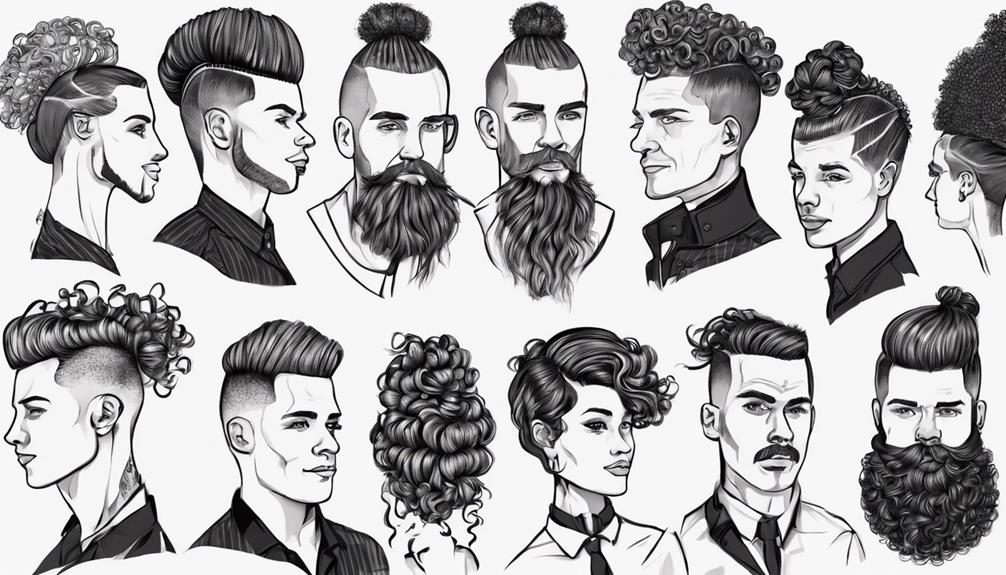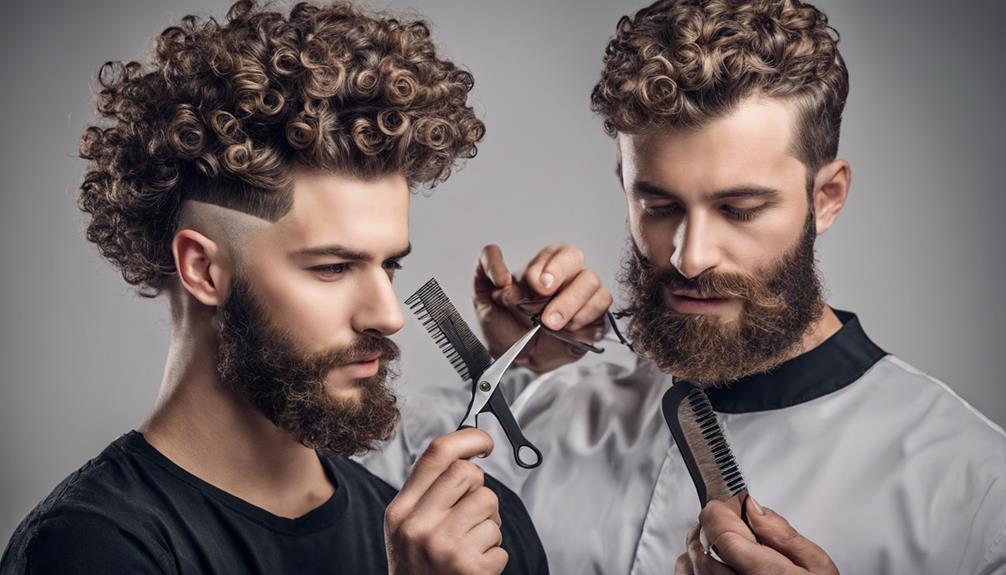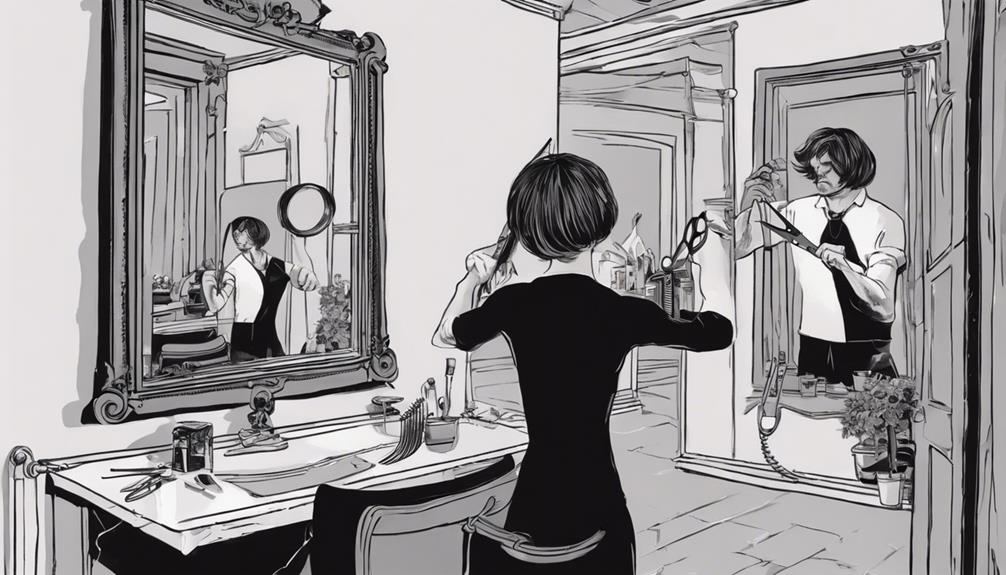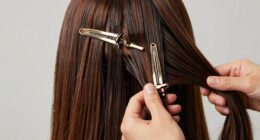We need to avoid participating in unauthorized hair cutting activities without the proper license, and instead, strictly follow licensing requirements. Cutting hair without the required license not only breaks the law; it also puts our professional reputation at risk and can lead to serious consequences.
Following proper cosmetology licensing procedures guarantees we uphold industry standards, protect client safety, and maintain our credibility. If you want to learn more about the steps you can take to avoid illegal hair cutting, keep exploring the importance of cosmetology licensing and other key insights provided.
Key Takeaways
- Obtain a cosmetology license through proper training and certification.
- Refrain from offering hair cutting services without a valid license.
- Adhere to state regulations and licensing requirements for legal practice.
- Educate clients on the importance of choosing licensed professionals.
- Report unlicensed hair cutting activities to relevant authorities for consumer protection.
Importance of Cosmetology Licensing
Cosmetology licensing is an indispensable requirement to legally practice in the beauty industry, serving as a pivotal credential that validates an individual's expertise and commitment to upholding industry standards. This license signifies that practitioners have undergone the necessary training and possess the essential skills and knowledge to provide safe and high-quality services to clients. One important aspect emphasized during cosmetology training is sanitation. Understanding and implementing proper sanitation practices are essential to prevent the transmission of lice and diseases among clients. By adhering to strict sanitation protocols, licensed cosmetologists guarantee the well-being of their clients and maintain a clean and hygienic working environment.
Moreover, cosmetology licensing acts as a protective barrier against unqualified individuals who may attempt to practice without the necessary expertise. Illegal practice without a cosmetology license not only jeopardizes the health and safety of clients but also undermines the professional standards and ethics upheld by the industry. It's essential for all practitioners to respect the regulations in place, as practicing cosmetology without a license is illegal in all states and can lead to severe consequences such as fines, convictions, or criminal charges. By obtaining a cosmetology license, professionals demonstrate their dedication to their craft and commitment to providing exemplary services within a regulated framework.
Risks of Unlicensed Hair Cutting

Operating as a hair cutter without the necessary license poses significant legal and safety risks that must be carefully considered and avoided. Unlicensed hair cutting undermines industry standards and compromises client safety. Below is a table highlighting the key risks associated with unlicensed hair cutting:
| Risks of Unlicensed Hair Cutting | |
|---|---|
| Legal Consequences | Client Safety Concerns |
| – Fines and penalties | – Lack of proper sanitation |
| – Potential criminal charges | – Risk of injuries due to lack of training |
| – Inability to receive payment | – Use of improper techniques |
| – Damage to professional reputation | – Allergic reactions to products |
Obtaining a cosmetology license ensures that hair cutters are trained in proper techniques, sanitation practices, and client safety. Unlicensed individuals lack this essential training, putting both themselves and their clients at risk. Prioritizing the safety and well-being of clients is paramount in the beauty industry, making adherence to licensing requirements a non-negotiable aspect of professional practice.
Legal Consequences for Unlicensed Practitioners
Shifting from the risks of unlicensed hair cutting, it's imperative to understand the legal consequences faced by practitioners who operate without the required license.
- Fines: Practicing without a cosmetology license can lead to hefty fines, impacting financial stability and professional reputation.
- Convictions: Unlicensed practitioners risk facing criminal convictions, tarnishing their record and limiting future career opportunities.
- Consumer Safety: Operating without a license poses a significant threat to consumer safety, as unqualified individuals may lack proper training and hygiene practices, potentially causing harm to clients.
These consequences highlight the importance of compliance with licensing regulations not only to avoid legal penalties but also to uphold industry standards, ethics, and ultimately protect the well-being of consumers.
Steps to Obtain a Cosmetology License
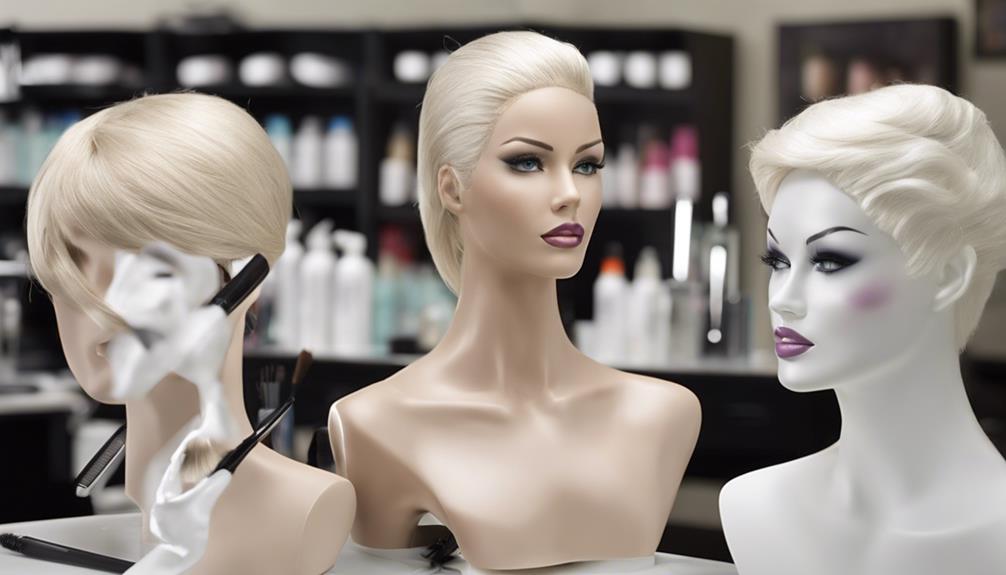
To begin on the journey towards acquiring a cosmetology license in Texas, individuals must first commit to completing 1,500 hours of training at an approved cosmetology school. This training is essential to gaining the necessary skills and knowledge in hair styling, makeup application, and other beauty services required to pass the written and practical exams for the cosmetology license.
The cost of obtaining a cosmetology license in Texas typically ranges from $1,000 to $2,000, covering exam fees and training expenses. Once licensed, professionals must renew their cosmetology license every two years and complete continuing education credits to stay compliant with state regulations and industry standards.
Holding a cosmetology license in Texas enables practitioners to legally offer a wide array of beauty services, ensuring they meet the necessary requirements to provide these services to clients while maintaining a high standard of professionalism and safety.
Ensuring Client Safety and Compliance
As licensed professionals in the cosmetology industry, we prioritize client safety and compliance with strict regulations to uphold industry standards and ethics. Ensuring client safety and compliance is vital in maintaining a reputable and legal practice.
Here are three key points to take into account:
- Regular Training: Licensed professionals undergo continuous training to stay updated on the latest techniques and safety protocols to prevent the spread of diseases and guarantee a safe environment for clients.
- Adherence to State Regulations: It's essential to comply with state regulations regarding cosmetology licensing to avoid legal implications. Each state has specific requirements that professionals must meet to practice legally.
- Client Safety Measures: Implementing strict sanitation practices, using proper tools and equipment, and following industry guidelines are crucial to safeguard the safety and well-being of clients during any cosmetology service.
Frequently Asked Questions
Can I Cut Hair in Texas Without a License?
We can't legally cut hair in Texas without a license. It's important to follow state regulations to avoid legal consequences.
Licensing requirements guarantee proper training and sanitation standards are met. Safety and compliance are top priorities when it comes to hair cutting.
Checking the licensing status is essential for guaranteeing a safe and legal environment for all involved.
Is a Barber License Required in Texas?
Yes, a barber license is required in Texas to legally practice barbering, which involves cutting and styling hair. To obtain this license, individuals must complete specific training hours and pass state exams.
Unlicensed individuals are prohibited from working for pay as barbers in Texas. Having a barber license opens doors to lucrative career opportunities in the styling industry, with licensed barbers in Texas earning an average salary of $42,470 per year.
Can You Shampoo Hair in Texas Without a License?
Yes, we can shampoo hair in Texas without a license. The Texas Department of Licensing and Regulation doesn't regulate shampooing services, making it legal for individuals to provide this service without a cosmetology or barber license.
Understanding which services require licensing is important for compliance in the beauty industry. Shampooing falls outside the scope of regulated activities, allowing for innovation and flexibility in providing basic hair care services.
Can I Cut Hair From My Home?
Yes, we can cut hair from our home, but it's important to make sure compliance with local regulations. Operating without a license can lead to fines and legal issues.
To avoid these pitfalls, we recommend obtaining the necessary permits and licenses. By taking these steps, we can protect our reputation and future career prospects while upholding legal standards in our home-based hair cutting business.
Is it illegal to give someone a blocked hair cut without a license?
In many places, it’s illegal to give someone a blocked hair cut without a license. This ensures that only qualified professionals with the necessary skills and training can perform this service. By regulating the industry, it helps maintain the uniqueness and quality of haircuts being offered to the public.
Conclusion
In summary, obtaining a cosmetology license is essential to avoid illegal hair cutting. Did you know that according to the National Association of Boards of Cosmetology, there are over 1.2 million licensed cosmetologists in the United States?
By ensuring proper licensing and compliance, not only are you protecting yourself from legal consequences, but you're also ensuring the safety and satisfaction of your clients. Stay compliant and keep cutting legally!

